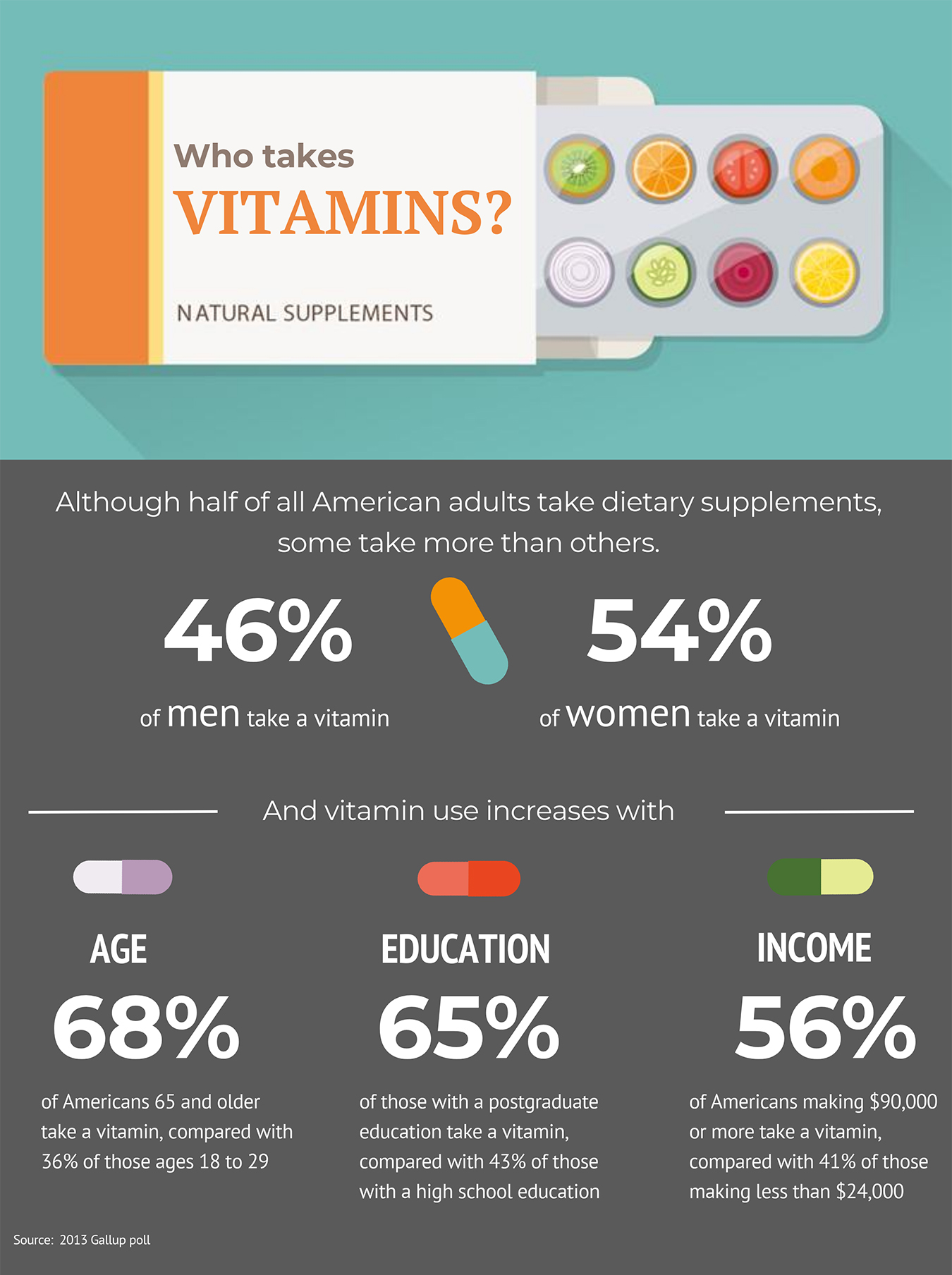
We often get asked “if I start taking vitamins, how long before I notice a difference” and the answer is Which areas of your health are you hoping to improve? What does your current diet and lifestyle look like? Do you have any existing conditions? Taking all these factors into account, what can you expect to notice once you start taking supplements? Unlike medications, which are designed to treat an existing problem, vitamins are designed to proactively support your health. On a side note, if you are taking m edications, make sure you check with your doctor about any potential drug-nutrient interactions. Several vitamins and minerals are involved in energy production, most notably B vitamins, which are heavily involved in producing ATP, the biological unit of energy. The effects of B vitamins anecdotally can be fairly instantaneous whilst research has found B vitamins alongside vitamin C and minerals help participants feel more alert within about 2 weeks 1.
One-third of Americans take multivitamins, according to a article published in Mother Jones magazine. Unless you’re deficient in a specific nutrient, however, it’s highly unlikely you’ll feel any different when you add a multivitamin supplement to your diet, unless you’re experiencing an adverse reaction, in which case you should consult your doctor immediately. Multivitamins are available in a variety of combinations, based on age, gender and activity level. Special combinations are also available for pregnant or nursing women. While it’s usually safe to take a multivitamin, always consult your doctor first to help you determine your needs. If you’re deficient in a nutrient, you may feel notice improvements when you add a multivitamin to your diet. The three most common nutrients deficient in the U. Both vitamin B-6 and iron help make red blood cells, and upping your intake if you’re deficient may help improve energy and concentration within a month. Vitamin D is important for bone health, and its effects may not be noticed immediately.
Because dietary supplements are not regulated by the Food and Drug Administration FDA, multivitamins may contain higher or lower levels of some nutrients than the label states 4. Let’s say nutrient stores are like pools. But first, what exactly are they tracking? It’s called self-advocacy. You can tell when it has been absorbed and excreted in the urine. Our Doctors Weigh In How to find a vitamin regimen that works for you? Supplements affect everyone differently.
